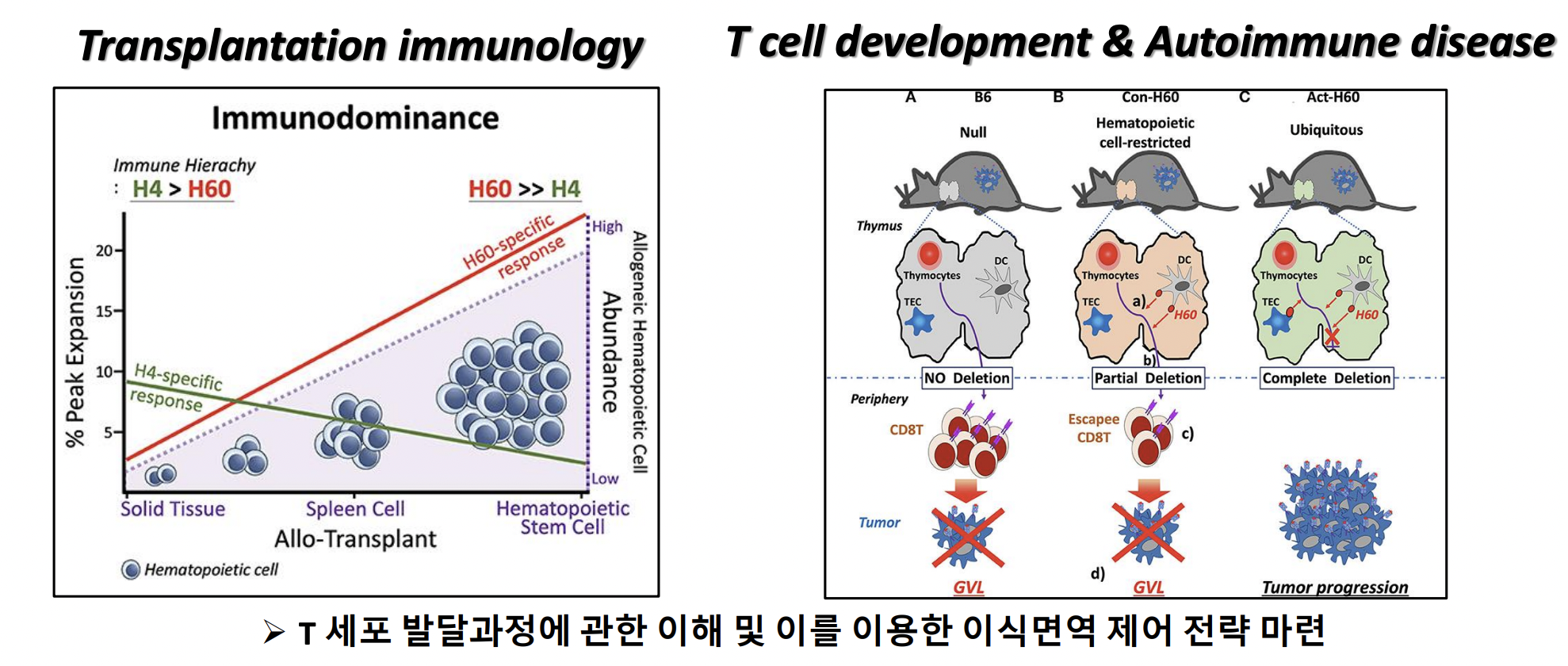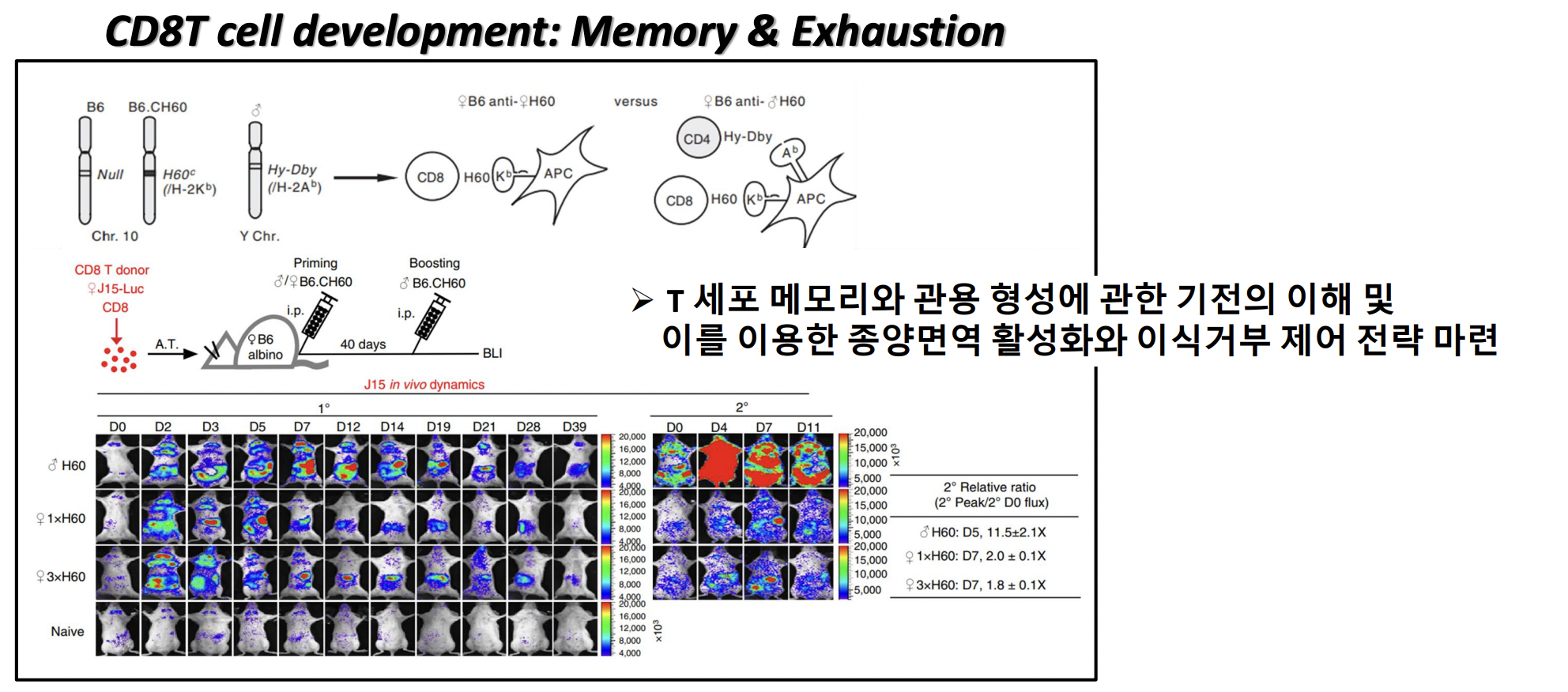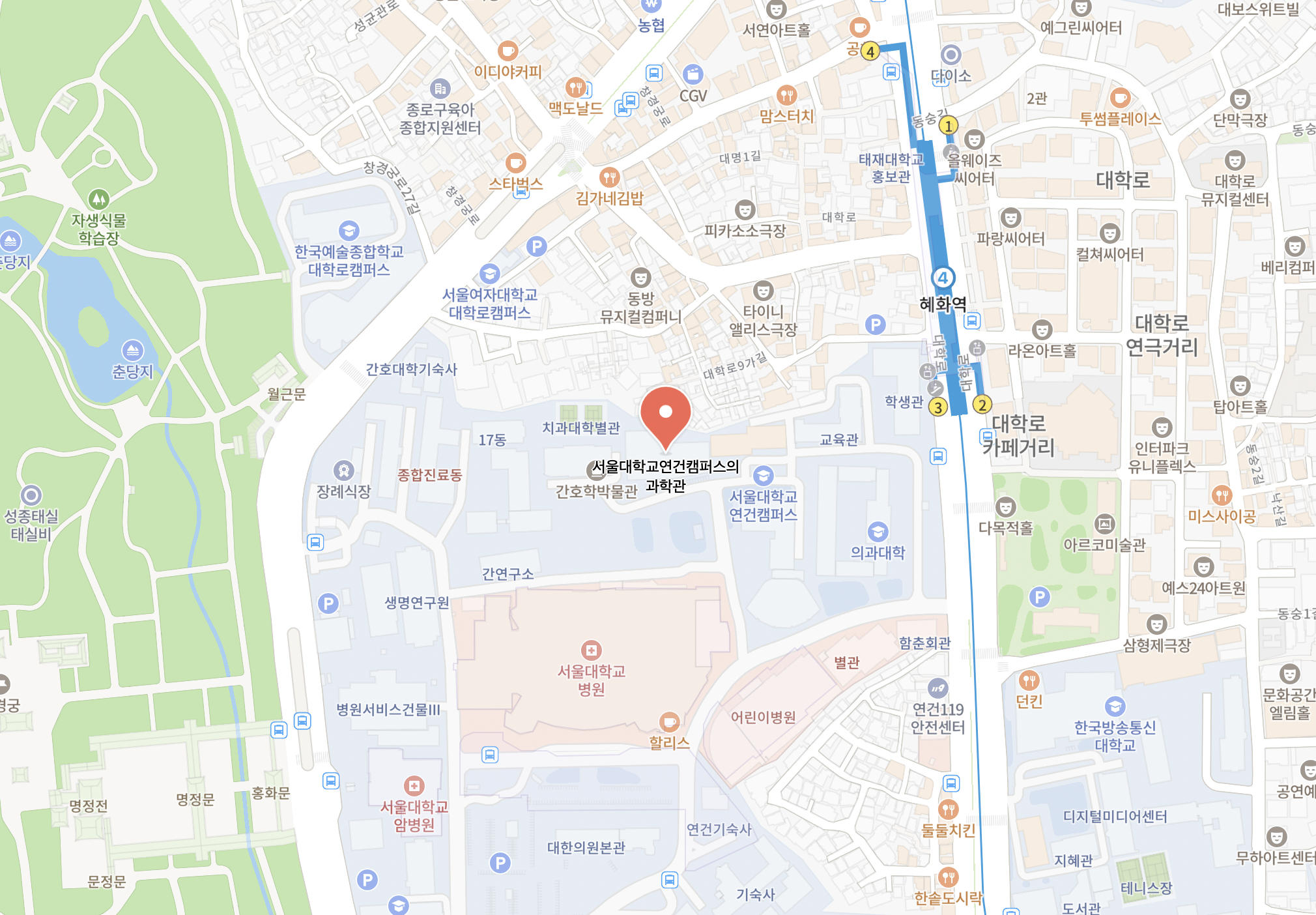Immunogenetics Laboratory
Immunigenetics Laboratory
The immune system is a double-edged sword. On the one hand, deficiencies in immunity expose the host to infection by pathogens or possibly to tumors. On the other hand, a hyperactive immune response can cause diseases such as autoimmunity by failing to distinguish self from non-self.
Our major research goal is to understand how the fine tuning and balance of the T cell response is established and maintained under physiological and various pathological conditions, not only to find ways to suppress destructive autoimmune responses, but also to enhance beneficial responses to foreign antigens and tumors.
This dichotomous nature of immunity is further complicated when it comes to the immune response following allogeneic transplantation. Successful transplantation requires tolerance to non-self antigens derived from transplanted donor cells to prevent graft rejection, while maintaining immunity to pathogenic non-self antigens. Using congenic, transgenic, and knock-out mouse strains for various genes essential for immunity, our laboratory investigates how immunity is controlled by establishing animal disease models for immune disorders such as graft rejection, graft-versus-host disease, tumors, and autoimmune diseases, by mining gene functions related to the immune response in vivo, the network between adaptive and innate immune cells, and by developing therapeutic strategies to treat the diseases.



CD99-mediated immunological synapse formation potentiates CAR-T cell function
Improved safety of chimeric antigen receptor T cells indirectly targeting antigens via switchable adapters
Glutamyl-prolyl-tRNA synthetase (EPRS1) drives tubulointerstitial nephritis-induced fibrosis by enhancing T cell proliferation and activity
-
2025-10-26
-
2025-10-13
-
2025-09-25
-
2025-09-25
-
2025-08-29
-
2025-08-06
-
2025-08-05

Room 301, Biomedical Science Building, Department of Biomedical Sciences, Seoul National University College of Medicine, 103 Daehak-ro, Jongno-gu, Seoul 03080, Republic of Korea
서울특별시 종로구 대학로 103, 서울대학교 의과대학 의과학관 301호 (우: 03080)
Office
서울대학교 의과대학 의과학관 310호
E-mail: eycii@snu.ac.kr
